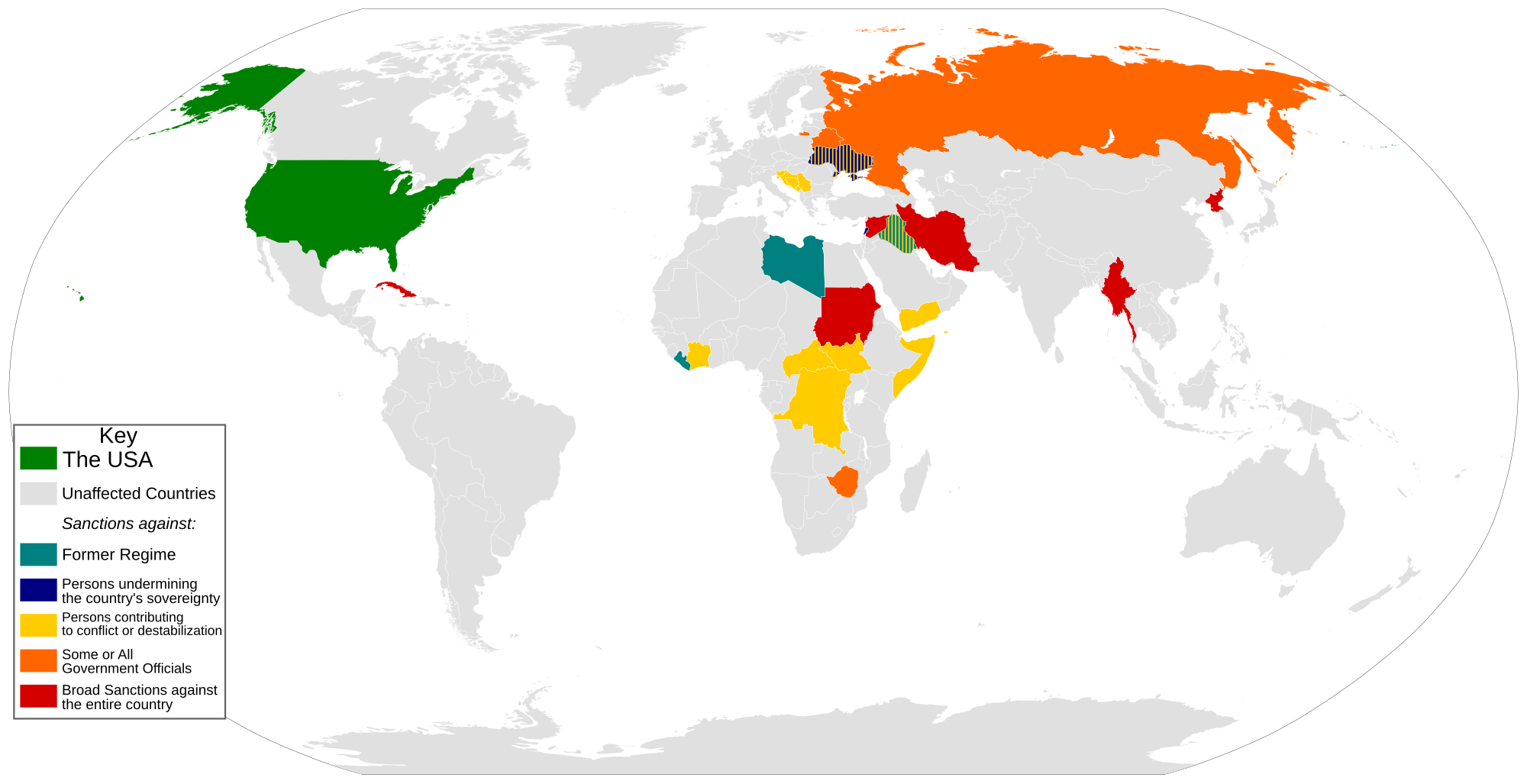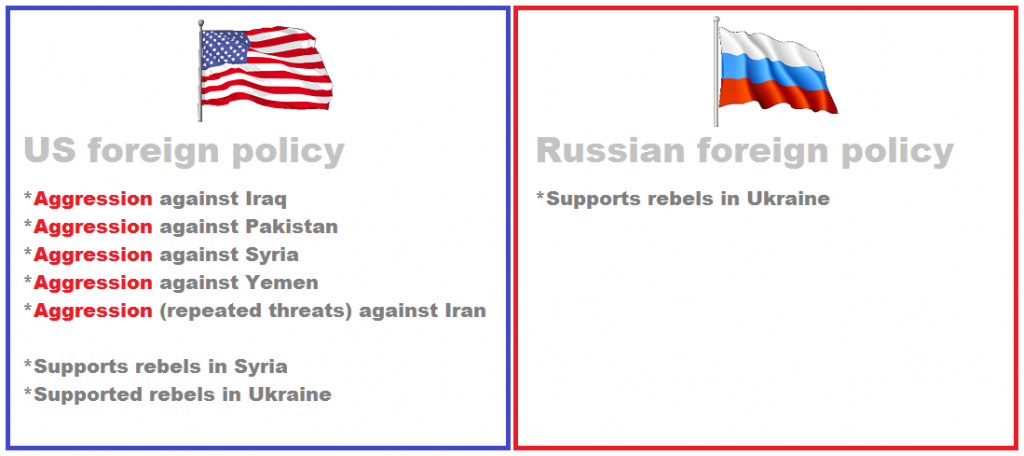Les femmes, les enfants et les vieillards, les individus entraînés par la violence ne méritent pas sans doute le même sort que les monstres qui ont ourdi la révolte
Women, children and old people, people affected by violence probably do not deserve the same fate as the monsters that have precipitated revolt
Lazare Nicolas Marguerite Carnot
I have always maintained that sanctions are an ineffective means of influencing other countries.

US unilateral sanctions via Wikimedia Commons (not up to date, as Venezuela has since been punished too)
They didn’t work on Cuba or Iran, and expecting them to work against a mightier power like the Russian Federation or China is folly. It is also abundantly clear that the US government and its allies’ ability to apply sanctions is very limited, making sanctions an ineffective punishment mechanism against powers that are perceived to break international law. How frightened would you be of a form of punishment that has a poor record of success and the person applying it finds a new victim before he is even finished with you? This describes how the US has dealt with Cuba and Iran, and how it is now beginning to deal with Venezuela and Russia.
The Global Tyrant: Collected Foreign Policy Commentaries
Cuba and Iran have done nothing but wait for the US’s sanctions regimes to be abandoned. The Cuban regime is no different now than it was when the US started sanctions against it, but the US has now given up. The same is true of Iran.
There is already talk that Europe will abandon its energy dependence on Russia in exchange for getting energy from Iran. It was the subject of an excellent Counterpunch article aptly titled “Another Idiotic Plan to Hurt Russia”. As argued there, the maneuver to get Europe to access Iran’s vast petrochemical resources via sanctions removal is ultimately aimed at isolating Russia, but first the western countries will have to swallow their arrogant rhetoric against Iran and accept Iran as a legitimate country (more legitimate than Russia). Think about this change of course by them, for a moment. In order for the west, the supposed global policemen, to isolate a country, they have to let another country out of jail unconditionally. It is a sign of weakness, and it was inevitable. To avoid isolating itself, the west (the US in particular) can only afford to bully a few countries at a time (and even these few countries are not under full economic sanctions, but only symbolic sanctions against specific personages). As the US became more and more hostile to the Maduro government in Venezuela and the Putin government in Russia, it abandoned its campaigns to isolate the governments of Cuba and Iran. It surrendered unconditionally to them, because it was too distracted by new enemies.
What does this confessed inability of the Obama administration to continue sanctioning Cuba and Iran, while moving on to new targets like Russia and Venezuela, mean? It might be wise to point out that whenever the Obama administration seeks sanctions against a country on a particular continent, it seeks the removal of sanctions against a country on the same continent. One explanation could be to avoid damage to America’s trade opportunities. The US can only afford to sanction a limited number of countries at any time, or the damage will become reciprocal and the US will lose trade. The notion that the US plays an omnipotent role, striking or sanctioning countries that violate international law and removing the punishments once they comply, is implausible. Even the theory that a single country could ever be the arbiter of international law, punishing “rogue states”, is doomed to ridicule.
The US government thinks of itself as a global policeman. However, it hardly behaves like one or has coercive power over other countries that might make it comparable to a policeman. It is determined to “go it alone” rather than serving as part of a police force, and it also breaks the law as frequently as it claims to enforce it.
The handcuffs the US tries to place on other countries are made of Plasticine, the rewards of cooperation unconvincing and often absent. The measures the Obama administration uses to bring countries down and compel them to obey US moral authority are weak, limited and only capable of assaulting a single country at a time. The US is unable to fight all its enemies, because it has too many.


